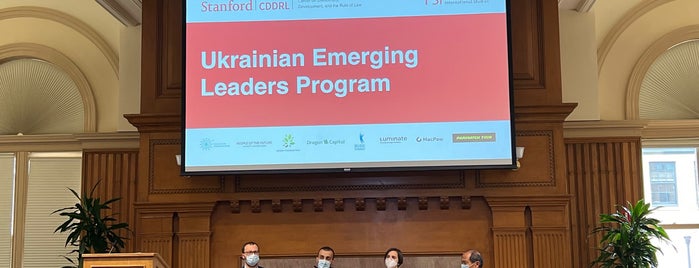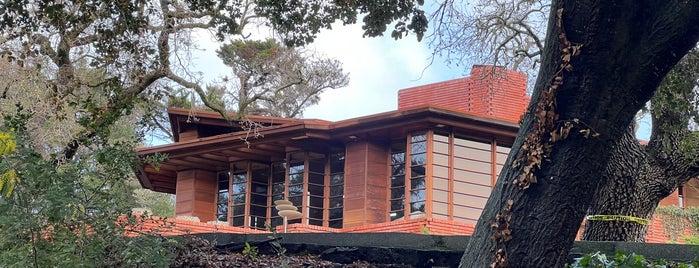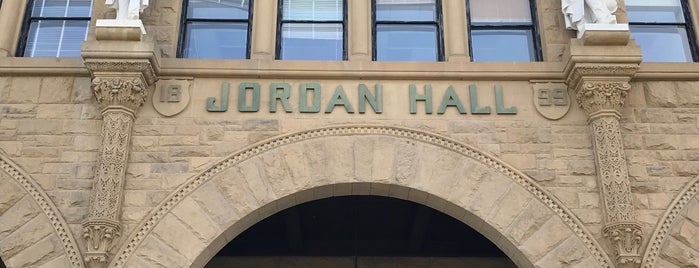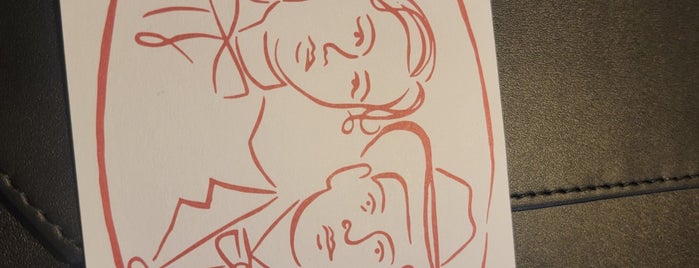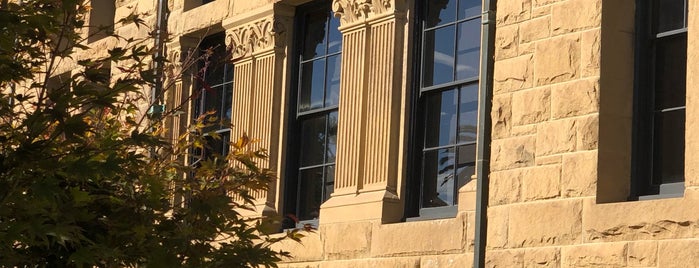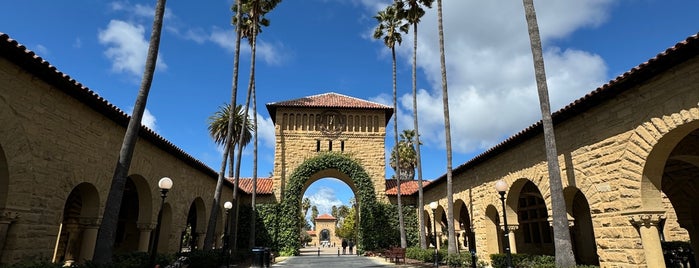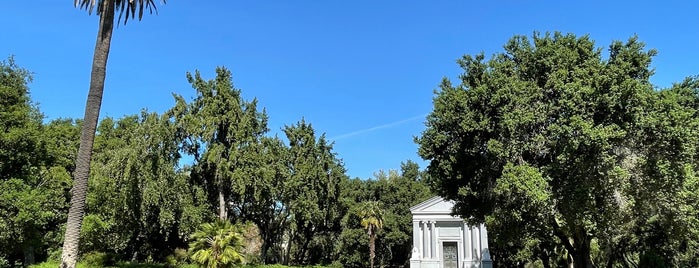![]() Designed by Frank Lloyd Wright, the Hanna House is based on hexagonal geometry (like the honeycomb of a bee), and has no right angles in the floor plan. Advance tour reservations required. Read more.
Designed by Frank Lloyd Wright, the Hanna House is based on hexagonal geometry (like the honeycomb of a bee), and has no right angles in the floor plan. Advance tour reservations required. Read more.
![]() For views of Stanford and beyond, don’t miss the 14th floor. Named for President Herbert Hoover who got his start in politics by serving as Stanford Student Body Treasurer in 1894. Read more.
For views of Stanford and beyond, don’t miss the 14th floor. Named for President Herbert Hoover who got his start in politics by serving as Stanford Student Body Treasurer in 1894. Read more.
![]() The original museum was built in 1891 as University co-founder Jane Stanford's memorial to her son, an avid antiquities collector. Prior to the 1906 quake, it was the largest private museum in the US. Read more.
The original museum was built in 1891 as University co-founder Jane Stanford's memorial to her son, an avid antiquities collector. Prior to the 1906 quake, it was the largest private museum in the US. Read more.
![]() Check out the basement to see where the classic 1971 Stanford Prison Experiment took place. The results were so extreme that it was stopped early. Read more.
Check out the basement to see where the classic 1971 Stanford Prison Experiment took place. The results were so extreme that it was stopped early. Read more.
![]() Opened in 1937, this outdoor arena was the site of Commencement from 1938 to 1984. Frost has also played host to concerts, including those of Jefferson Airplane, Eric Clapton, and The Grateful Dead. Read more.
Opened in 1937, this outdoor arena was the site of Commencement from 1938 to 1984. Frost has also played host to concerts, including those of Jefferson Airplane, Eric Clapton, and The Grateful Dead. Read more.
![]() The official residence of University President, John Hennessey. Formerly the home of U.S. President Herbert Hoover and his wife Lou Henry Hoover, who designed it. The house is entirely solar powered. Read more.
The official residence of University President, John Hennessey. Formerly the home of U.S. President Herbert Hoover and his wife Lou Henry Hoover, who designed it. The house is entirely solar powered. Read more.
![]() Constructed in 1900, Old Chem largely survived the 1906 earthquake, and was reoccupied until 1986. Old Chem has been fenced off and boarded up since the 1989 earthquake. Its fate remains undecided. Read more.
Constructed in 1900, Old Chem largely survived the 1906 earthquake, and was reoccupied until 1986. Old Chem has been fenced off and boarded up since the 1989 earthquake. Its fate remains undecided. Read more.
![]() Holds the remains of Leland Stanford Jr. and his parents, Leland and Jane Stanford, who planned to build a mansion on this site. After the death of their son, they built a university instead. Read more.
Holds the remains of Leland Stanford Jr. and his parents, Leland and Jane Stanford, who planned to build a mansion on this site. After the death of their son, they built a university instead. Read more.
![]() The original Stanford Stadium, built in 1921, played host to the Super Bowl XIX, World Cup and Olympic soccer matches, a Presidential nomination, and, of course, Cardinal football games. Read more.
The original Stanford Stadium, built in 1921, played host to the Super Bowl XIX, World Cup and Olympic soccer matches, a Presidential nomination, and, of course, Cardinal football games. Read more.
![]() In 2001, environmental artist Andy Goldsworthy created Stone River, a 320 ft. long outdoor sculpture composed of original sandstone blocks from buildings damaged in both the 1906 and 1989 earthquakes. Read more.
In 2001, environmental artist Andy Goldsworthy created Stone River, a 320 ft. long outdoor sculpture composed of original sandstone blocks from buildings damaged in both the 1906 and 1989 earthquakes. Read more.


